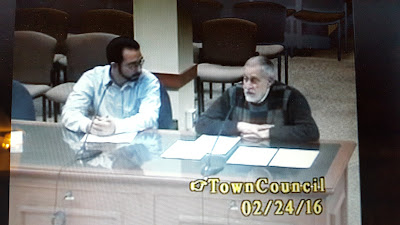Registration Opens January 2, 2024 - Closes February 29, 2024
The Backyard Ecosystem Education (BEE) Program is an interactive program for Franklin residents and business owners to design and create a native, biologically diverse habitat at their property. The BEE Program consists of five themed workshops and one field day giving residents and business owners the skills to:
- Attract wildlife and plant life to their habitat;
- Support their habitat through climate change and other ecological stressors;
- Plan and design their backyard habitat with professional practitioners; and
- Be considered a Backyard Ecosystem Advocate
Upon successful completion and attendance of the BEE Program, participants will be considered a "Backyard Ecosystem Advocate" and their habitats, once established, will have the opportunity to become "Certified Wildlife Habitats" through the National Wildlife Federation.
Registration opens January 2, 2024 and is on a first come, first serve basis. Registration closes February 29, 2024. Registration is available to all residents regardless of ownership/rental status or living situation, all Franklin business owners, and up to five FPS high school students. The Conservation Department is currently collaborating with FPS - STEM to excuse up to five students for the scheduled field day, so students - please apply if you are interested!
Workshop descriptions are listed below. Questions? Email bgoodlander@franklinma.gov.
| Workshop Title | Date, Time, and Location | Description |
| Wildlife | Wednesday, April 3, 2024 4p - 6p Location TBD | Residents will learn common wildlife species that they may find in their backyard habitats and/or how to attract these wildlife species to their habitats. |
| Plant Life | Wednesday, April 10, 2024 4p - 6p Location TBD | Residents will learn common native and wildlife friendly plants and common invasive plants they may plant and/or find in their backyard habitats. |
| Landscapes and Regional Context | Wednesday, April 17, 2024 4p - 6p Location TBD | Residents will learn to identify what landscape they live in, its regional context, and how to design a habitat suitable for their surroundings. |
| Climate and Other Ecological Stressors | Wednesday, April 24, 2024 4p - 6p Location TBD | Residents will learn how to plan their habitat for climate change, design their habitat considering climate resilience, and mitigate future environmental stressors and disturbance events. |
| Planning and Design | Wednesday, May 1, 2024 4p - 6p Location TBD | Residents will be able to sit down in small groups with professional practitioners to design their own specific backyard habitat applying all lessons learned in previous workshops. |
| Field Day and Graduation Luncheon | Friday, May 10 10a - 2p Location TBD | Residents will be bussed around Town for a tour of raingardens, biodiversity areas, turtle nesting habitats, regenerative forests, gardens, and more. Lunch and a graduation ceremony will be provided. |
Shared from -> https://www.franklinma.gov/conservation/news/join-backyard-ecosystem-education-bee-program-2024
 |
| Join the Backyard Ecosystem Education (BEE) Program in 2024 |



